The Speakers

Maria Nilsson
State Secretary, Swedish Ministry of Education and Research
Areas of responsibility: Research and higher education and Space issues
Personal: Maria Nilsson was born in 1979.
Education: 1999–2005
Degree of Master of Political Science and Russian, Lund University
Positions and assignments
2022– : State Secretary, Ministry of Education and Research
2022: Party Secretary, Liberal Party
2020–2022: Member of the Riksdag, Liberal Party
2017: Education Counsellor, National Agency for Education
2014–2017: Consultant, Emerga
2012–2014: Project manager, Living History Forum
2010–2012: Secretary, Federation of Liberal Women
2008–2010: Project manager, Culture Clinic
Other:
2019–: Chair, Liberal Party in Gothenburg
2015–2019: Vice chair, Federation of Liberal Women
2014–2018: Member, City of Gothenburg Cultural Affairs Committee
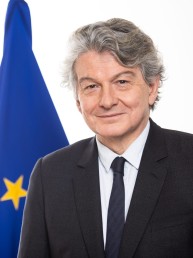
Thierry Breton
European Commissioner for Internal Market, European Commission
Thierry Breton ran several companies and served as CEO at Bull, Thomson Multimédia and France Télécom. From 2005 to 2007, he served as French Minister of Economy, Finance, and Industry before joining Harvard Business School as a Professor. In 2009, he became CEO at Atos, a function he held until 2019 when he became the European Commissioner for Internal Market. His portfolio includes industry, goods and services, digital, defence, space, tourism and audio-visual topics.
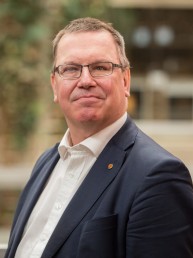
Erik Bergkvist
Member of the European Parliament for the Swedish Social Democrats
Erik Bergkvist from Umeå, Sweden, is since 2019 a Member of the European Parliament for the Swedish Social Democrats, part of the European political group of Socialists & Democrats. Erik is Member of the Committee on Transport and Tourism (TRAN), the Committee on Regional Development (REGI) and Substituting Member of the Committee on Industry, Research and Energy (ITRE). Erik is also a Member of the Parliamentary Delegation for Northern Cooperation (D-EEA).
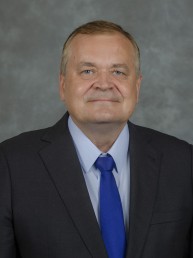
Timo Pesonen
Director-General, Directorate General for Defence Industry and Space, European Commission
Timo Pesonen is the Director-General for Defence Industry and Space (DG DEFIS) at the European Commission since January 2020.
His previous functions include Director-General for the European Commission’s directorate general for Internal Market, Industry, Entrepreneurship and SMEs in 2019, and for the directorate general for communication between 2015 and 2019.
He also served twice as head of cabinet of European Commission Vice-President Olli Rehn, who oversaw the economic and monetary affairs from 2010 to 2014, and enlargement from 2004 to 2009.
Earlier in his career, Timo Pesonen worked as a spokesperson to Commissioner Erkki Liikanen, responsible for budget and administration.
Before joining the European Institutions, he was the foreign policy adviser to the Prime Minister of Finland, Paavo Lipponen. He holds a MSc in Social Sciences-International Politics from the University of Tampere, Finland.
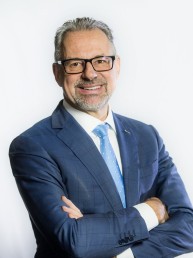
Josef Aschbacher
Director General of the European Space Agency

Anna Rathsman
Director-General, Swedish National Space Agency
Anna Rathsman is the Director General for the Swedish National Space Agency and appointed Chair of ESA Council. She has unique in-depth knowledge and experience from space technology, business and space science within different leading positions in the space business domain for more than 30 years.
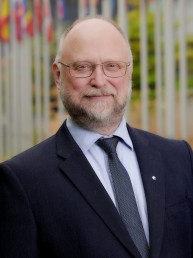
Phil Evans
Director, European Organisation for the Exploitation of Meteorological Satellites
Phil Evans became EUMETSAT’s fifth Director-General on 1 January 2021. Evans took over leadership of the organisation at an exciting and challenging time. Exciting, because the organisation will deploy the first of its next-generation geostationary and polar-orbiting satellite systems from 2022. Challenging, due to the complexity of these systems and the global coronavirus pandemic’s impact on working conditions. Evans brings to the role the experience gained from his long career in senior management positions at the UK Met Office and a background in remote sensing and satellite instrumentation. He also has a strong commitment to collaboration with partners around the globe. He brought to the position a deep understanding of EUMETSAT’s culture and values, having led the UK’s delegation on the organisation’s Council from 2018 to 2020. Starting at the Met Office in 1988, Evans rose to become Chief Operating Officer from 2017 to 2020. In this role, he was responsible for the organisation’s operational forecasting, observation development and infrastructure and international relations, as well as organisation-wide operational delivery, resilience and security. Other positions Evans held at the Met Office included Director of Government Business, Chief Advisor to Government, Head of Secretariat and Managing Director of Commercial Business. As Director Government Business, he was responsible for Met Office services to Government and industry related to climate research, weather forecasting, defence, international aid and UK warnings. Evans started at the Met Office in scientific and technical roles related to remote sensing. This work involved satellite data retrieval, instrument specification and design. After leaving the Met Office and before joining EUMETSAT, Evans was Director of Physics Programmes at the Institute of Physics, in 2020. There, he was a member of the Executive Board and Board of Trustees. He was responsible for education improvement and physics innovation programmes, equality, inclusion and diversity programmes for the physics community and the Enterprise Programme Office. He has an Honours degree in Physics from Birmingham University.
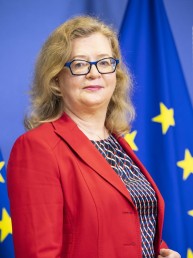
Salla Saastamoinen
Deputy Director-General for the Joint Research Centre, European Commission
Salla Saastamoinen is Deputy Director-General in Directorate-General Joint Research Centre (JRC) at the European Commission. The Joint Research Centre is Commission’s science and knowledge service that provides independent, evidence-based knowledge and science, supporting EU policies to positively impact society. In the JRC, Salla Saastamoinen is in charge of the five scientific directorates working in the areas of Fair and sustainable economy; Energy, mobility and climate; Sustainable resources; Space, security and migration; and Health and food. Salla Saastamoinen has worked in the European Commission since 1996, first in DG Environment and then in several areas in DG Justice and Consumers. In DG Justice, Salla Saastamoinen was lastly the acting Director-General covering policy areas of civil and criminal justice, fundamental rights and rule of law, equality and Union citizenship, and consumers. At the same time, Salla Saastamoinen was Director for civil and commercial justice, and before that, Director in charge of equality and non-discrimination. Before joining the Commission, Salla Saastamoinen was a partner in a law office in Helsinki, Finland. She has a licentiate degree in law (post-graduate level) from the University of Helsinki, Finland, and post-graduate studies in law from the universities of Saarbrücken, Germany and Zürich, Switzerland. She is author of several books on environmental law and EU law.
Twitter: @SallaLoi @EU_ScienceHub
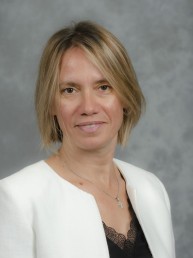
Paraskevi Papantoniou
Acting Director for Space, Directorate General for Defence Industry and Space, European Commission
Mrs Evi Papantoniou is Director for Space (acting) in the European Commission – Directorate-General for Defence Industry and Space (DEFIS). Ms Papantoniou is in charge of EU Space Policy and EU space flagships, Copernicus and Galileo /EGNOS. She is responsible in particular for actions supporting the EU aerospace ecosystem, as well as for relations with the European Space Agency (ESA) and the EU Space Programme Agency (EUSPA). Until December 2019, she was the Head of Unit in the Directorate-General for the Internal Market, Industry, Entrepreneurship and SMEs (DG GROW) responsible for legal and inter-institutional aspects of Galileo/EGNOS, the EU satellite navigation programme. Previously, she contributed in setting-up the EU Defence Fund and dealt with the shaping of EU response on countering hybrid threats. Ms Papantoniou has also worked in the European Commission Task Force for Greece. In that capacity, she supported Greece’s structural reform efforts under the economic adjustment programme in the area of business environment and justice reform. As competition lawyer by training, she worked for several years in DG Competition of the European Commission on competition enforcement in anti-trust, but also state aid control. Before joining the European Commission, she worked in the European Court of Justice in Luxembourg and as a competition lawyer in Paris. She holds a Master of Laws (LLM) in EU law from the College of Europe in Bruges.
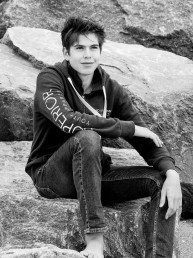
Thomas Lesage
Founder, Children for the Oceans
Thomas Lesage, 19 years old, is the founder of the NGO « Children for the Oceans » created in June 2018. In September 2018, he started a worldwide sailing tour for the protection of the oceans during which he gave awareness sessions to more than 400 kids worldwide. In parallel with his studies, Thomas works within the NGO which aims at increasing the awareness of children on the protection of the oceans. Today, Children for the Oceans counts 3000 members and 25 ocean ambassadors worldwide.
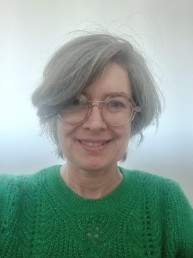
Virginie Lafon
President, I-SEA
Virginie Lafon holds a PhD in oceanography from the university of Bordeaux (1999). These past 25 years she has developing space applications in relation to coastal morphology and erosion risk monitoring, water quality assessment and habitat mapping. She co-funded i-Sea company in 2014 with the ambition to introduce and amplify the use of Earth Observation in large communities of coastal and biodiversity managers. She is currently co-leading i-Sea and is really proud to contribute to the development of i-Sea’s service offer that, on the basis of large satellite image libraries, daily supports the implementation and monitoring of public policies in favour of environmental protection.
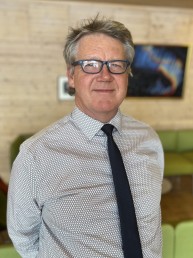
Craig Donlon
Head, Earth Surfaces and Interior Section, Earth and Mission Science Division, European Space Agency
Dr. Craig Donlon received a Ph.D. Oceanography (1994) Department of Oceanography, University of Southampton, UK . In 2008 he joined the European Space Agency as the Principal Scientist for Oceans and Ice at the Earth Observation Programmes Directorate based at ESTEC, the Netherlands. Craig is the Mission Scientist for the Copernicus Imaging Microwave Radiometer (CIMR), Sentinel-3 and Sentinel-6 Missions. He has worked in many different areas of satellite oceanography including the Ocean Forecasting Division at the Met Office UK, at the University of Colorado Center for Astrodynamics Research (CCAR) and at the European Commission Joint Research Centre, Italy.
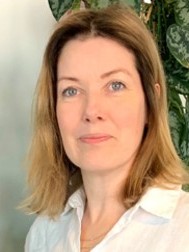
Camilla Jonsson
Remote sensing expert at the Nature Data Unit, Swedish environmental protection agency, Sweden.
Camilla has broad expertise in GIS and remote sensing with applications in different disciplines and subject areas, focusing on nature conservation and environmental monitoring. She has experience of working with various satellite sensors, in particular from the Copernicus programme. Over the past decade she has worked with the development, implementation, and coordination of the Swedish National Landcover database in close cooperation with several Swedish agencies. Camilla Jönsson holds a Master’s degree in physical geography.
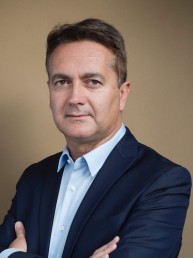
Thierry Cotelle
President, NEREUS
Graduated as Engineer in Industrial Chemistry (Conservatoire National des Arts et Métiers), Thierry Cotelle has managed several SMIs (Small and Medium Industries) in the aeronautics sector for 25 years and is currently General Director of a Business Unit at Satys Aerospace. In terms of political commitments, Thierry Cotelle has been Deputy Mayor of Toulouse in charge of employment, economic development, space and aeronautics between 2008 and 2014. Thierry Cotelle is Regional Councillor since 2016 and was previously President of the regional agency for renewable energies (AREC). Since 2021, he is First Vice President for the Commission “Economy, Employment, Re-industrialisation” and belongs to the following thematic commissions “Climate Emergency” and “Water and Risk Prevention”. Thierry Cotelle has been elected NEREUS President in December 2021. He was reelected for another two years in April 2023. He is also a member of the Board of NEREUS-associate member Cité de l’Espace for 20 years.

Andre Kalia
Senior scientist, Remote Sensing Department, German Federal Institute for Geosciences and Natural Resources
Andre Kalia is a senior scientist at the Remote Sensing Department at the Federal Institute for Geosciences and Natural Resources (BGR). He started to design, implement and operate the German Ground Motion Service in 2013. His work focuses on the application of ground motion products based on Radar remote sensing. Before 2013 Mr. Kalia was active in the field of Radar and optical remote sensing at the University of Hohenheim and at the German Aerospace Center. He graduated from the University of Giessen in 2011 with a master’s degree in physical geography.
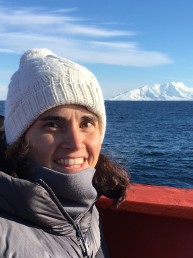
Isabel Montoya Montes
Representative, Canary Islands Delegation of the Geological and Mining Institute of Spain

Igor Magdalenić
President, Croatian Crisis Management Association
President of Croatian Crisis Management Assocoiation, member of National Civil Protection Intervention Unit for technical-tactical support and Red Cross Emergency Team. Seismic and Forest fire risks assessment in Croatia using Copernicus EMS Risk and Recovery, assests damage assessment after 2020 Zagreb and Petrinja Earthquake and field coordination during COVID-19 pandemic. Author of scenario based disaster risk assessment model for local authorities, Humanitarian and Emergency Response during 2014 Floods and 2015 Migrant Crisis.

Olimpia Imperiali
Deputy team leader of the Security and Situational Awareness sector in the Directorate-General for European Civil Protection and Humanitarian Aid Operations (DG ECHO, European Commission)
Olimpia Imperiali has worked in the European Commission since 2009 when seconded to DG ECHO by the Italian Civil Protection Department as policy officer. She worked towards the establishment of an analytical and scientific team to support the Emergency Response Coordination Centre (ERCC) and developed DG ECHO mapping capacity. She created and implemented the European Natural hazard Scientific Partnership, “All risk integrated system towards trans-boundary holistic early- warning” (ARISTOTLE), providing 24/7 scientific advice to the ERCC and contributing to a more structured use of scientific knowledge in disaster management. Currently, she is Deputy Head of the Situational Awareness Sector in DG ECHO, responsible for Early Warning System, the European Scientific partnerships for Natural and Anthropogenic hazards and Copernicus. She also worked in the ERCC and has been deployed as ERCC Liaison Officer in several Union Civil Protection Mechanism field missions. She hold a Master of Science degree in Economics at the University of Rome “La Sapienza”
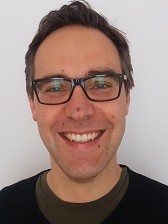
Peter Salamon
Scientific project manager at the Joint Research Center of the European Commission
Dr. Peter Salamon is a scientific project manager at the Joint Research Center of the European Commission where he is coordinating the Copernicus Emergency Management Service and its components the European and Global Flood Awareness Systems. He holds an M.Sc. in Applied Environmental Geoscience from the Eberhard-Karls University in Tübingen (Germany) and a Ph.D. in Hydraulic and Environmental Engineering from the Polytechnic University of Valencia (Spain). During his research activities and professional career, he has gained experience in policy support in the area of disaster risk management at European and global level. His technical background is in hydrology, numerical modeling, hazard and risk mapping, climate change impacts, uncertainty assessment and operational flood forecasting. He is author and co-author of more than 50 peer-reviewed articles.
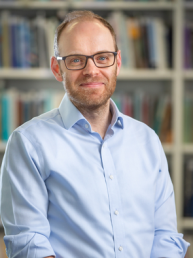
Mark Parrington
Senior Scientist, Copernicus Atmosphere Monitoring Service, European Centre for Medium-Range Weather Forecasts
Mark Parrington is a Senior Scientist in the Copernicus Atmosphere Monitoring Service (CAMS) Development Section at ECMWF. He holds a DPhil in Atmospheric Physics from the University of Oxford and has more than 15 years’ experience of working with Earth observation data. Prior to joining ECMWF, in September 2013, he worked on many aspects of applying Earth observation data, in situ measurements and numerical modelling to atmospheric chemistry and air quality research. His role in the CAMS team is to monitor the near-real-time wildfire emissions and global atmospheric composition products, to diagnose potential issues in the CAMS system and also to help identify significant events related to atmospheric composition that are relevant for communication and media.
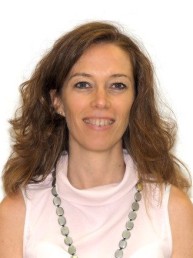
Francesca di Donato
Environmental Epidemiologist, Department of Epidemiology of the Lazio Regional Health Service
Dr. Francesca de’Donato is based in Rome and manages the Italian national Heat Health Warning System on behalf of the Ministry of Health and Civil Protection and contributes to the Italian and Lazio regional heat plans.
She works in environmental epidemiology studying the health effects of extreme temperatures and climate change on health outcomes and the identification of vulnerable groups, and uses satellite data to estimate high resolution temperatures to study the health effects within urban areas.
Francesca is involved in several European projects and in the past has acted as Editor of the document “Heat and health in the WHO European Region: updated evidence for effective prevention”.
Francesca holds a Phd in Epidemiology and Biostatistics from Imperial College London; MSc in Epidemiology Università Cattolica, Rome; MSc Applied Meteorology and Climatology and BSc Geography from the University of Birmingham, UK.
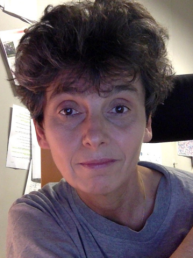
Susanna Corti
Director of Research, Italian National Research Council – Institute of Atmospheric Sciences and Climate
Susanna Corti is Principal Scientist at the Institute of Atmospheric Science and Climate (ISAC) of the Italian National Research Council (CNR) and coordinator of the “Global Change” unit in the Earth system science and environmental technologies Department of the CNR. She is Lead Author for the IPCC WG1 AR6 (Sixth Assessment Report) and contributor to the IPCC WG1 AR5. Currently, Susanna is also Principal Investigator (PI) for CNR of two European projects, executive Editor of “Climate Dynamics” (since 2007), member of the Joint Scientific Committee (JSC) of the World Climate Research Programme (WCRP), and vice-chair of the Scientific Advisory Committee of ECMWF.
Susanna’s research interests cover a wide range of topics across the physics of weather and climate. This includes sub-seasonal to decadal ensemble climate predictions, and high-resolution climate modelling; Weather and Climate predictability. She holds a Ph.D. in Physics at the University of Bologna.
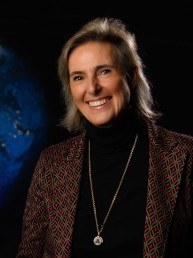
Simonetta Cheli
Director of ESA Earth Observation Programmes and Head of ESRIN, European Space Agency
Simonetta Cheli took up duty as Director of Earth Observation Programmes and Head of ESRIN (D/EOP) on 1 January 2022.
Born in Siena, Italy, she studied law and economics at Yale University in the United States, before gaining a degree in political sciences with a thesis on international satellite telecommunication law at the University ‘Cesare Alfieri’ in Florence, Italy. She also holds a diploma of advanced studies (DEA) from the Centre d’Etudes Diplomatiques et Stratégiques (CEDS) in Paris. She has worked at ESA for over three decades, both at Headquarters in Paris and at ESRIN, including 15 years of working within the Directorate of Earth Observation Programmes. She joined ESA in 1988, working in International Relations, Programme and Strategy, then moved to ESRIN in 1999 as Head of Public and Institutional Relations covering Italy, Spain and Portugal. In 2008, she returned to Paris as Head of the Coordination Office for Earth Observation.
Before her selection as Director of Earth Observation, Simonetta Cheli was Head of the Strategy, Programme and Coordination Office for Earth Observation, coordinating relations with international partners in the field of environment and climate, and with ESA Member States and the European Union, managing the Programme Board of Earth Observation, and relations with European Partners such as Eumetsat and ECMWF. She also teaches Master courses on space, is a member of numerous international committees and has received various awards.
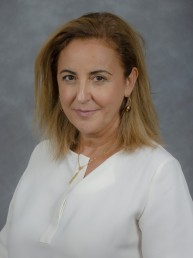
Catherine Kavvada
Director for Innovation & Outreach, Directorate General for Defence Industry and Space, European Commission
Catherine Kavvada was born in Greece in 1969. A trained lawyer with a degree in Law from the University of Athens, she is specialised in Air and Space Law with a Master’s degree from the University of Aix Marseille III.
She joined the European Commission, in Brussels, in 1997 and worked initially in the Research Framework Programmes.
Subsequently, as from 2000 her main service at the Commisssion related to space, in particular the European flagship Satellite Navigation Programmes Galileo and EGNOS (Head of Unit from 2011 to 2019 at DG GROW).
Her mandate continued in the realm of development and applications in the space sector as Head of Unit in the newly created DG DEFIS in January 2020, until her appointment as Director at the same DG as from 1 December 2020.
The career path of Ms Kavvada comprises various areas and stages of policy formulation, legislative and budgetary decision-making, delivery of large-scale space programmes including their security governance, international relations, communication, and human resources management.
Currently the mandate of Ms Kavvada at the Directorate ‘Innovation & Outreach’ at DG DEFIS comprises new space initiatives with prevalent resilience and security features, space data management policy with reinforced European credentials, mainstreaming of the European New Space as a vector for society and economy, space research, synergies between space and defence industry, and international relations and communication.
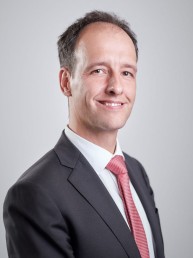
Rodrigo da Costa
Executive Director, European Union Agency for the Space Programme
On 16 October 2020, Rodrigo da Costa took up his duties as Executive Director of the European Union Agency for the Space Programme (EUSPA). Prior to this, he worked at the agency as the Galileo Services Programme Manager. EUSPA provides safe and secure European satellite navigation services, promotes the commercialization of Galileo, EGNOS, and Copernicus data and services and coordinates the EU’s forthcoming governmental satellite communications programme GOVSATCOM. Before joining EUSPA, Rodrigo held several senior project management, business development, and institutional key account management positions in the space industry, in the areas of human space flight, exploration, launchers and R&D. Rodrigo da Costa holds a degree in Aerospace Engineering from the Instituto Superior Tecnico in Lisbon, a Master’s degree in Aerospace Engineering from the University of Delft, and an MBA from the EuroMBA consortium of Business Schools.
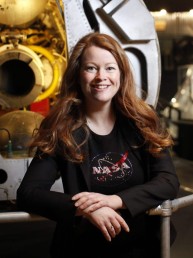
Cecilia Hertz
Founder and CEO, Umbilical design, and Co-founder of International Space Asset Acceleration Company
Cecilia Hertz is Co-founder of I.S.A.A.C. International Space Asset Acceleration Company and Founder and Managing Director, Umbilical Design, Stockholm Sweden. Cecilia Hertz started her career in the space sector with a Diploma work at NASA, Houston, developing the interior of the Crew Return Vehicle (CRV). In 2001, Hertz founded Umbilical Design, and has worked with NASA and ESA on design for the space industry including over 15 years of experience in space technology transfer representing Sweden as part of ESA Space Solutions Network. In 2022 Hertz founded I.S.A.A.C. International Space Asset Acceleration Company, with entrepreneur Mattias Hansson and Swedish Astronaut Christer Fuglesang as co-owner. First project in I.S.A.A.C. is Space for Agenda 2030, with the purpose to accelerate sustainable development by using insights and technologies from the space sector. I.S.A.A.C. proudly works with Koenigsegg, Stilride, Jernkontoret, STUA and two property companies NREP and Stena Fastigheter. Cecilia Hertz has also launched a book called “SPACE – and everything we can learn from it”.
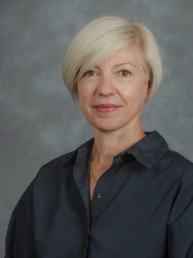
Dinka Dinkova
(Moderator), Deputy head of unit , international relations and Communication, Directorate General for Defence Industry and Space, European Commission
Ms Dinka Dinkova is Deputy Head of Unit for International Relations and Communication at the European Commission’s Directorate General for Defence Industry and Space (DG DEFIS). Over the past decade she has worked on different areas of EU space policy and EU space programme, including uptake of space data for societal challenges and growth, Copernicus evolution, EU-ESA cooperation, communication and outreach strategies, international relations. Her professional carreer before joining the Commission included policy consultancy and advocacy work on knowledge economy, innovation policies, regional development and multilateral donor assistance coordination for organisations such as the World Bank, UNDP, USAID. Ms Dinkova holds a Master’s degree in business administration.
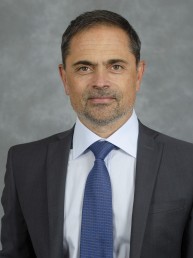
Mauro Facchini
Head of unit, Earth Observation, Directorate General for Defence Industry and Space, European Commission
Mr Mauro Facchini is Head of Unit for Earth Observation in the European Commission – Directorate-General for Defence Industry and Space (DEFIS). Mauro Facchini is Italian and has an engineering background with a PhD in Mechanical Engineering. Before joining the European Commission he has worked in Italy, UK and Switzerland, mostly in the academic and research environment. He joined the European Commission in 2002, initially as supervisor of research projects. Then he has been involved in Space aspects and participated to the definition of the European Space Policy from its early days in concluding agreements with ESA and in drafting and including article 189 (EU Space Competence) in the Lisbon Treaty. He has been Head of the Space Research Unit for the EU financing of space activities and then Head for the development and implementation of the European Earth observation programme initially known as GMES and later Copernicus. He is currently the Head of Unit in charge for Earth Observation at the European Commission.
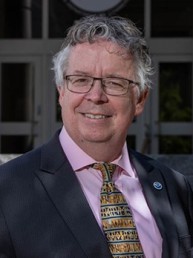
Stephen Volz
Ph.D., Assistant Administrator for NOAA's Satellite and Information Service
Dr. Volz has 35 years of professional experience in aerospace. As the NOAA lead for all space Earth Observations, Dr. Volz helps define the space and information architecture for NOAA, and, working in partnership with NASA and other US agencies, helps guide the U.S. approach to future civil space observations. He is a leader in the international Earth observation community, serving as the NOAA Principal both to the Committee on Earth Observation Satellites (CEOS) and to the Coordinating Group of Meteorological Satellites (CGMS). Dr. Volz is the U.S. Principal to the Executive Committee of the international Group on Earth Observations (GEO), and in this capacity he helps lead efforts coordinating with global participants on the use of global Earth Observations data, including satellite-based observations, to further the delivery of comprehensive environmental information to communities around the world. He serves as the Co-Chair of the NOAA Observing Systems Council and is also a member of the NOAA Executive Council. Dr Volz also served as Acting Assistant Secretary of Commerce for Environmental Observation and Prediction (ASEOP), for almost 33 months over two periods between 2016-2022. Dr. Volz previously served as the Associate Director for Flight Programs in the Earth Science Division of NASA’s Science Mission Directorate where he managed all of NASA’s Earth Science flight missions and associated activities. Prior to serving as the Flight Program Director, Dr. Volz was the Earth Science program executive for a series of Earth Science missions, including EO-3 GIFTS, CloudSat, CALIPSO, and ICESat, and he led the Senior Review for the Earth Science operating missions. Dr. Volz worked in industry at Ball Aerospace and Technologies Corporation from 1997–2002, where he was the Project Manager for the Spitzer Space Telescope (formerly the Space Infrared Telescope Facility) superfluid helium cryostat and other flight projects. From 1986–1997 Dr. Volz worked for NASA’s Goddard Space Flight Center as an instrument manager, an I&T Manager, a systems engineer, and a cryogenic systems engineer on missions and instruments including the Cosmic Background Explorer (COBE), among others. Dr. Volz is a member of several professional societies, including the International Committee on Remote Sensing of the Environment (ICORSE), the American Physical Society, the American Astronomical Society, the American Geophysical Union, and the American Meteorological Society . He is a senior member of the Institute of Electrical and Electronics Engineers and an active member of and participant in the Geoscience and Remote Sensing Society. Dr. Volz has a doctorate in Experimental Condensed Matter Physics from the University of Illinois at Urbana-Champaign, a master’s in Physics from Illinois, and a bachelor’s in Physics from the University of Virginia. He has more than 20 publications in peer-reviewed journals.